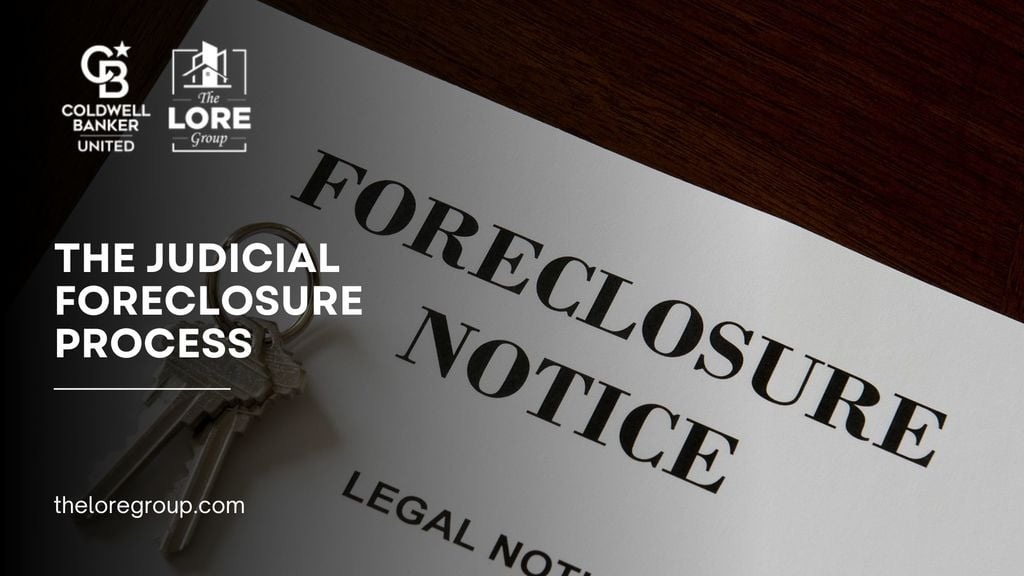To buy a judicial foreclosure in Fort McMurray, you’ll participate in a court-ordered sale where properties are often sold below market value. These sales can offer great opportunities for real estate investors, but success requires careful planning.
In this guide, we’ll walk you through the essential steps—from understanding the legal process and securing financing to placing a successful bid—so you can confidently make a profitable purchase.
Understanding Judicial Foreclosure
Judicial foreclosure is a legal process initiated when a lender files a lawsuit against a borrower who has defaulted on their mortgage. Unlike non-judicial foreclosures, which bypass the court system, judicial foreclosures require a judge’s approval before the property can be sold.

The Judicial Foreclosure Process
- The lender files a lawsuit.
- The court reviews and validates the lender’s claim.
- A foreclosure order is issued.
- The property is sold at a public auction to recover the debt.
This approach ensures transparency but often takes longer than non-judicial methods.
Know the Laws in Alberta
Foreclosure laws in Alberta vary from those in other provinces, affecting timelines, procedures, and buyer rights. It’s important to understand Alberta’s specific regulations regarding judicial foreclosures to avoid potential legal issues and ensure a smooth purchasing process. Familiarize yourself with local rules and seek legal advice if needed.
Preparing to Buy a Judicial Foreclosure
1. Assess Your Finances
Evaluate your financial readiness by reviewing your credit score, setting a budget, and accounting for potential repair costs.
2. Secure Financing
Consider financing options tailored to foreclosure purchases, such as:
- Conventional loans
- Purchase plus improvements mortgage combines the home’s cost and renovation expenses into a single manageable mortgage, sometimes requiring as little as 5% down. Renovation quotes must be provided upfront, and funds are released after the work is completed.
- Private or hard money loans for fast approval
- High-ratio insured mortgages for buyers with a smaller down payment, where the mortgage is insured by the Canada Mortgage and Housing Corporation (CMHC) or another insurer.
Pre-approval can simplify the buying process.
3. Set Clear Investment Goals
Decide whether your goal is to flip the property, rent it out, or hold it as a long-term investment. These objectives will shape your strategy.
Finding Judicial Foreclosures
1. Check Local Court Records
Local courthouse records or online databases can provide details on upcoming auctions.
2. Use Online Resources
Explore public auction sites and real estate platforms to access comprehensive foreclosure listings in Fort McMurray, AB, complete with property descriptions and auction schedules.
3. Connect with Real Estate Professionals
Agents specializing in foreclosures often have early access to listings and can advise on bidding strategies. Reach out to The Lore Group – Coldwell Banker United for personalized guidance and insider knowledge.
Conducting Due Diligence
1. Inspect the Property
Assess the property’s condition to identify necessary repairs. Judicial foreclosures are sold “as-is,” so understanding renovation needs is crucial.
2. Review Title and Liens
Ensure there are no existing liens or legal issues. A title company or real estate lawyer can assist with this process.
3. Determine Market Value
Conduct a comparative market analysis (CMA) to estimate fair market value. This helps you bid wisely and avoid overpaying.

Bidding on Judicial Foreclosures
1. Understand the Bidding Process
Auctions are typically held at courthouses, requiring bidders to register and provide a deposit.
2. Prepare Your Bid
Set a maximum bid based on your budget and the property’s value. Adhere to your limit to avoid financial strain.
Closing the Deal
1. Finalize the Purchase Agreement
Winning bidders must complete legal requirements and sign contracts to secure the sale.
2. Budget for Closing Costs
Account for expenses such as title transfer fees, taxes, and legal services.
3. Transfer Ownership
Ownership is typically transferred through a sheriff’s deed or similar document, depending on provincial laws.
Post-Purchase Considerations
1. Renovate and Manage the Property
Address repairs promptly to enhance the property’s market value or rental appeal.
2. Plan for Challenges
Be prepared for potential issues, such as evictions or unexpected repairs, by seeking professional guidance.
3. Decide on Rental or Resale
Evaluate market conditions to choose whether to rent or resell the property for maximum return on investment.
Turning Challenges into Opportunities
Buying a judicial foreclosure can be a rewarding venture when approached strategically. By understanding the process, conducting thorough research, and preparing financially, you can navigate this complex market with confidence.
Need expert guidance? Contact The Lore Group – Coldwell Banker United today and speak with Susan Lore, Jamie Hewat, Tristan Parker, Dean Lewis, Scott Campbell, or Sheila Green to take the next step in your real estate investment journey.


